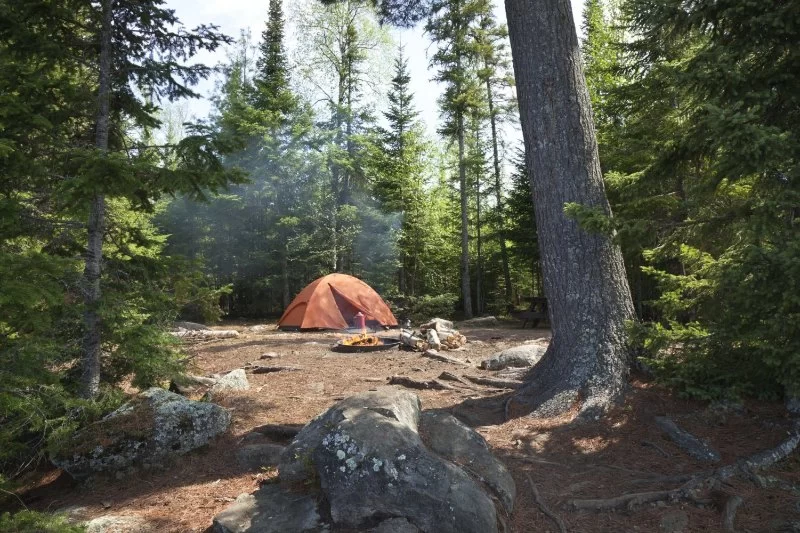Learn how to keep your food safe from animals while camping with expert tips, real stories, and practical strategies to protect your meals and enjoy a stress-free outdoor adventure.

- understanding-the-challenge - Understanding the Challenge of Wildlife and Food Safety
- proper-food-storage-methods - Proper Food Storage Methods in the Outdoors
- real-stories-from-campers - Real Stories from Campers and Lessons Learned
- tools-and-gear - Tools and Gear That Help Protect Food
- choosing-your-campsite-wisely - Choosing Your Campsite Wisely to Avoid Wildlife Encounters
- expert-advice-on-camping-safety - Expert Advice on Camping Safety and Food Management
- tips-for-families-and-beginners - Tips for Families and Beginners to Build Confidence
Understanding the Challenge of Wildlife and Food Safety
One of the most common concerns for outdoor enthusiasts is how to keep your food safe from animals while camping. From raccoons and squirrels to bears, many species are skilled at sniffing out unattended food. For campers, this is more than a nuisance—it’s a safety issue. Wildlife that becomes accustomed to human food can become aggressive, creating risks for both animals and people. Recognizing the importance of food safety is the first step toward ensuring a peaceful and enjoyable camping trip.
Proper Food Storage Methods in the Outdoors
Safe storage is at the heart of camping food safety. Many parks recommend or even require the use of bear-proof containers, which are designed to resist prying claws and strong jaws. Hanging food in a tree, at least 12 feet off the ground and 6 feet from the trunk, is another traditional method. However, it’s not foolproof if done improperly. Double-bagging food in odor-resistant bags adds an extra layer of protection. By planning ahead, campers can prevent unexpected midnight raids and protect both their meals and the surrounding ecosystem.
Real Stories from Campers and Lessons Learned
Stories from the field highlight why food safety matters. One camper in Colorado shared how a black bear tore through their cooler because it was left outside overnight. The incident not only ruined their food supply but also forced them to cut their trip short. In contrast, another group camping in the Adirondacks used a bear canister for the first time and watched as a curious raccoon gave up after a few minutes of scratching. These examples show how proper precautions make all the difference when learning how to keep your food safe from animals while camping.
Tools and Gear That Help Protect Food
Modern camping gear makes food safety much easier. Bear-proof canisters, lockable coolers, and scent-proof storage bags are staples for seasoned adventurers. Lightweight hanging kits are also available for backpackers who want flexibility. Investing in these tools isn’t just about convenience—it’s about peace of mind. For those unsure where to start, Pine Cliff Resort offers recommendations on the most effective gear and services for outdoor safety. Having the right tools turns a risky experience into a confident adventure.
Choosing Your Campsite Wisely to Avoid Wildlife Encounters
Location matters as much as storage. Setting up camp away from game trails, berry patches, or water sources reduces the likelihood of wildlife wandering near your tent. Many experienced campers also recommend cooking at least 100 feet from sleeping areas and keeping food smells concentrated in one spot. Being mindful of campsite selection not only keeps food safe but also minimizes the stress of unwanted encounters. Awareness of the environment is one of the simplest ways to maintain safety in the wilderness.
Expert Advice on Camping Safety and Food Management
Outdoor experts consistently stress that preparation is key. Beyond gear, campers should establish routines—clean dishes immediately, pack away leftovers, and never leave trash exposed. Even small crumbs can attract unwanted guests. Rangers often remind visitors that an animal’s nose is far more powerful than ours, so even sealed containers can emit scents. The goal is to reduce temptation as much as possible. By following expert strategies, campers can enjoy their time outdoors without constantly worrying about food safety.
Tips for Families and Beginners to Build Confidence
For families and first-time campers, the idea of wildlife encounters can be intimidating. Start by practicing safe storage at home—packing meals into airtight containers and testing your setup in the backyard. Children can be involved by helping seal bags or learning why food safety matters. Confidence grows with preparation, and soon the routines become second nature. Families who practice these habits find that outdoor trips feel less stressful and more adventurous. And when planning your next escape, Pine Cliff Resort can provide the right resources and guidance to make your camping experience both safe and enjoyable.
Larson Lake Campground
Cook, MN 55723, USA
Visit Location PageSwayback Campground
2656 Old US Hwy 231, Wetumpka, AL 36092, USA
Visit Location Page